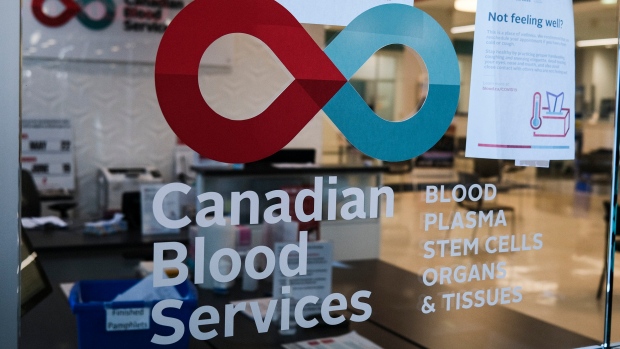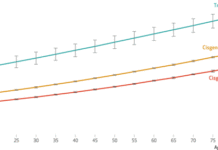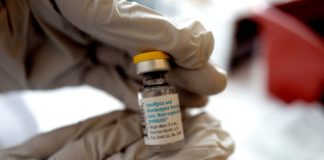
CANMORE, ALTA. — Canadian Blood Services has expanded plasma donation eligibility at its donor centres in Calgary and London, Ont., marking a small step forward in the promise to eliminate the blood ban prohibiting gay and bisexual men and some LBGTQ2S+ folks from donating blood.
At these donor centres, gay, bisexual and certain trans folks who have sex with men are now eligible to donate plasma, provided they have not had a new sexual partner or their partner has not had sex with another partner in the last three months.
“While this marks an important step in our journey toward establishing more equitable blood donation policies and screening processes, we recognize these new criteria may pose barriers to donation for some individuals,” Canadian Blood Services wrote in an update Tuesday.
“Our goal remains to remove the current waiting period for men who have sex with men and use sexual behaviour-based screening for all donors instead.”
For years, advocates have called for the blood ban – which began in 1992 following the tainted blood scandal that saw thousands of Canadians infected with HIV after receiving donor blood – to be replaced with a gender-neutral screening process that is based on sexual behaviour and not orientation.
In Canada, both Canadian Blood Services and Hema-Quebec have policies in place prohibiting gay and bisexual men who have sex with men, as well as certain trans folks who have sex with men, from donating blood unless they have been abstinent for three months.
Canadian Blood Services says this waiting period is an “incremental step” in the journey to eliminating the ban and eventually plans to remove it and use sexual behaviour-based screening for all donors instead.
The agency says it aims to make a submission to Health Canada, the agency responsible for reviewing and approving changes to donor selection processes, to do so by the end of 2021. However, it’s unclear how quickly such a change would be implemented.
Plasma donated by gay, bisexual and other men who have sex with men (gbMSM) will be made into plasma protein products when the donor comes in at least 60 days later with a plasma donation that tests negative for infectious diseases, as per Health Canada requirements.
While these donors are not able to donate whole blood, the plasma donations are used to create specialized medicine to treat a variety of rare, life-threatening, chronic and genetic conditions.
Canadian Blood Services does not yet have a timeline to roll out the plasma donation screening program to other cities.
Glenndl Miguel, a 28-year-old paramedic, participated in the gbMSM local advisory group for the University of Ottawa-led research project based in Calgary, which Canadian Blood Services is using to guide the changes and provide evidence to Health Canada, and was one of the first plasma donors under the new program.
“I’m a big proponent for blood and plasma donation,” he said in a press release issued by the Canadian Blood Services. “And I understand the challenges and importance of safety when it comes to donated blood and plasma. I welcome this as an incremental step, but I want it to go further.”
The research project included insights from donors like Miguel about how members of the gbMSM community view the new donation criteria and how it would affect their future willingness to donate.
Those conducting the research worry that the barriers facing LGBTQ2S+ donors may still stand in the way of some donations.
“Our research highlights a central dilemma faced by many prospective gbMSM donors,” Dr. Elisabeth Vesnaver, post-doctoral follow at the University of Ottawa’s School of Epidemiology and Public Health said in a press release.
“They want to help others by donating, but don’t want to collaborate with an organization that they feel discriminates against gbMSM. Some who are eligible and otherwise willing are unlikely to donate because they prioritize equity over altruism.”








